
PAKISTAN JOURNAL OF AGRICULTURAL SCIENCES
Scope & Guideline
Fostering Sustainable Solutions in Agricultural Sciences
Introduction
Aims and Scopes
- Crop and Soil Sciences:
Research in this area encompasses agronomy, soil health, crop genetics, and the impacts of agronomic practices on yield and quality. The journal publishes studies on crop management techniques, soil fertility, and sustainable agricultural practices. - Animal Science and Veterinary Medicine:
This domain includes research related to livestock production, animal health, and veterinary practices. The journal features studies on animal genetics, nutrition, health management, and the economic aspects of animal farming. - Agricultural Technology and Engineering:
Innovations in agricultural machinery, automation, and precision farming are highlighted in this scope. The journal showcases research on the development and optimization of agricultural tools and techniques to improve efficiency and sustainability. - Plant Pathology and Pest Management:
This area covers research on plant diseases, pest management strategies, and the ecological impacts of agricultural practices. The journal aims to provide insights into disease resistance, pest control, and integrated pest management. - Food Science and Nutrition:
Research focusing on food processing, nutritional analysis, and food safety is included here. The journal addresses issues related to food security, quality, and the nutritional value of various crops and animal products. - Environmental and Agricultural Economics:
This scope involves studies on the socio-economic aspects of agriculture, including the economic viability of farming practices, market analysis, and the impact of climate change on agricultural productivity.
Trending and Emerging
- Precision Agriculture and Digital Farming:
There is a growing emphasis on the use of technology in agriculture, such as drones, IoT devices, and machine learning for crop monitoring and yield prediction. This trend is crucial for enhancing efficiency and sustainability in agricultural practices. - Sustainable Agricultural Practices:
Research focusing on sustainable methods, including organic farming, bio-based fertilizers, and integrated pest management, is on the rise. This reflects a broader global shift towards environmentally friendly agricultural practices. - Climate Change Resilience:
Emerging studies are increasingly addressing how agricultural systems can adapt to climate change. Research in this area includes drought tolerance, heat stress management, and the development of resilient crop varieties. - Biotechnology and Genetic Engineering:
There is a notable increase in research related to genetic modification and biotechnological innovations aimed at improving crop yields, disease resistance, and nutritional quality. - Food Security and Nutrition:
Recent publications have highlighted the importance of food security and nutritional quality, especially in the context of global challenges such as pandemics and climate change. This trend indicates a shift towards ensuring sustainable food systems. - Soil Health and Fertility Management:
Research focused on soil health, including the use of biofertilizers, organic amendments, and soil conservation techniques, is gaining prominence as a critical area for enhancing agricultural productivity.
Declining or Waning
- Traditional Farming Practices:
Research on conventional farming methods is becoming less frequent as the journal shifts towards more innovative and sustainable agricultural practices. The focus has moved towards technology-driven solutions and modern agronomic techniques. - Basic Agricultural Research:
There is a noticeable decline in studies that merely describe agricultural phenomena without applying advanced methodologies or technologies. The journal increasingly favors research with practical applications and implications for improving agricultural productivity. - Local Crop Varieties:
While local crop varieties were once a significant focus, there is a trend towards research on genetically improved or hybrid varieties that promise higher yields and better resilience to climate change and pests. - Rural Development Studies:
Research specifically centered on rural development issues in agriculture is appearing less frequently, potentially due to a greater emphasis on technological and scientific advancements rather than socio-economic studies.
Similar Journals
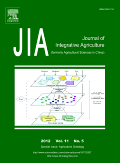
Journal of Integrative Agriculture
Advancing Agricultural Innovation Through Integrative ResearchJournal of Integrative Agriculture, published by Elsevier Science Ltd, stands as a leading platform for innovative research at the intersection of agricultural sciences. With a significant focus on integrative approaches, this journal has established itself within the academic community, reflecting its excellence through impressive Impact Factor rankings and a consistent Q1 category status in multiple fields, including Agronomy, Animal Science, and Ecology. The journal spans a wide range of topics, making it a critical resource for exploring advancements in Biochemistry, Food Science, and Plant Science. With its diverse Scopus rankings—from Rank #3 in Food Animals to Rank #14 in Animal Science—it serves as a vital repository for cutting-edge research that influences both scientific inquiry and practical applications in the agricultural domain. Operating from China and accessible through open access options, the Journal of Integrative Agriculture aims to foster collaborative research and knowledge exchange among scientists, professionals, and students worldwide, supporting the growth and sustainability of agricultural practices.
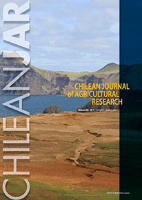
Chilean Journal of Agricultural Research
Championing open access to vital agricultural research.Chilean Journal of Agricultural Research, published by INST INVESTIGACIONES AGROPECUARIAS - INIA, is a premier academic journal dedicated to the advancement of knowledge in the fields of Agronomy, Crop Science, Animal Science, and Zoology. With an ISSN of 0718-5839, this journal serves as a vital resource for researchers, professionals, and students alike, facilitating the dissemination of impactful research from Chile and around the globe. Classified as a Q2 journal in both Agronomy and Crop Science and Animal Science and Zoology as of 2023, it occupies a significant position in academic rankings, highlighted by its Scopus metrics, which recognize its contributions to the field. The journal operates under an Open Access model, ensuring that valuable research is accessible to a wider audience, thereby promoting innovation and collaboration. With a converged publication timeline from 2008 to 2024, the Chilean Journal of Agricultural Research continues to enhance understanding and foster advancements in agricultural science, thus playing an instrumental role in addressing contemporary challenges in food security and sustainable practices.
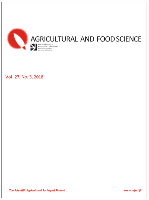
AGRICULTURAL AND FOOD SCIENCE
Connecting global researchers to revolutionize food systems.AGRICULTURAL AND FOOD SCIENCE is a prestigious journal published by the SCIENTIFIC AGRICULTURAL SOCIETY OF FINLAND, dedicated to advancing knowledge in the fields of agricultural and food sciences. With an ISSN of 1459-6067 and E-ISSN of 1795-1895, this open-access journal has been providing valuable insights and research findings since its inception in 2002. As of 2023, it holds a Q3 ranking in Food Science and is positioned at the 46th percentile within its Scopus category, ranking 210 out of 389 journals in Agricultural and Biological Sciences – Food Science. The journal features contributions from a global network of researchers, covering various topics including sustainable agricultural practices, food safety, and innovative food technologies. Based in Finland, the journal serves as an essential platform for scholars, professionals, and students who are committed to enhancing food security and agricultural productivity through rigorous scientific research. The convergence of interdisciplinary studies from 2004 to 2024 marks a critical evolution in the scope of agricultural and food research, making this journal a vital resource for anyone involved in these dynamic fields.
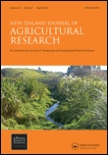
NEW ZEALAND JOURNAL OF AGRICULTURAL RESEARCH
Innovating Solutions for Modern Agricultural ChallengesNEW ZEALAND JOURNAL OF AGRICULTURAL RESEARCH is a prestigious, peer-reviewed journal published by Taylor & Francis Ltd that has been at the forefront of agricultural science since its inception in 1958. With a strong focus on the fields of Agronomy and Crop Science, Animal Science and Zoology, Plant Science, and Soil Science, this journal has established itself in the academic community, achieving a notable Q2 ranking in various agricultural categories as of 2023. The journal thrives on its commitment to disseminating cutting-edge research and innovative practices that address contemporary challenges in agriculture. Although it does not currently offer an open access option, its valuable contributions can be accessed through various academic platforms, ensuring that vital research reaches a wide audience of researchers, professionals, and students globally. The journal's continued relevance and authority are reflected in its strong Scopus rankings, further emphasizing its role as a critical journal within the agricultural sciences.
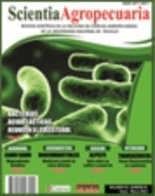
Scientia Agropecuaria
Innovating agriculture through open access and global collaboration.Scientia Agropecuaria, an esteemed journal published by the Universidad Nacional de Trujillo’s Faculty of Agricultural Sciences, is dedicated to advancing research in the fields of Agronomy, Animal Science, and Soil Science. With a rich heritage since its inception, the journal has embraced Open Access since 2010, ensuring global dissemination of knowledge to researchers and practitioners. Hailing from Trujillo, Peru, it plays a vital role in the scientific community, capturing a Q3 ranking across multiple categories in the 2023 category quartiles, which reflects its growing influence, supported by its commendable Scopus percentile rankings. The scope of the journal is to publish original research, reviews, and insights that address critical issues and innovations in agriculture and related fields, making it a key resource for researchers, professionals, and students aiming to stay abreast of cutting-edge developments. As the journal continues its convergence until 2024, it remains an important platform for impactful contributions to the agricultural sciences.

Journal of Tekirdag Agriculture Faculty-Tekirdag Ziraat Fakultesi Dergisi
Pioneering research in agriculture and biological sciences.The Journal of Tekirdag Agriculture Faculty-Tekirdag Ziraat Fakultesi Dergisi, published by UNIV NAMIK KEMAL, represents a significant platform dedicated to the dissemination of research in the fields of agricultural and biological sciences. With an ISSN of 1302-7050 and E-ISSN 2146-5894, this journal aims to advance knowledge and innovation within its scope, which encompasses a diverse array of agricultural topics and environmental pollution. Notably, it has achieved a Q3 category ranking in Agricultural and Biological Sciences and a Q4 category ranking in Pollution for 2023, reflecting its growing influence in the academic community. Operating from Turkey, the journal publishes articles that seek to address contemporary challenges in agriculture and environmental science, thus fostering collaborations among researchers, professionals, and students worldwide. Researchers can benefit from the journal’s focus on applied sciences, providing insights and solutions pertinent to real-world issues. Engage with cutting-edge studies and contribute to this evolving field by exploring the transformative research featured within.

SPANISH JOURNAL OF AGRICULTURAL RESEARCH
Nurturing Ideas for Enhanced Agricultural ProductivityThe Spanish Journal of Agricultural Research (ISSN: 1695-971X, E-ISSN: 2171-9292), published by the prestigious Consejo Superior Investigaciones Cientificas (CSIC), serves as a vital resource for those engaged in the fields of agronomy and crop science. Established as an Open Access journal since 2003, it aims to foster the dissemination of innovative research and practical applications related to agricultural practices and sustainability. With its Q3 category in Agronomy and Crop Science and a Scopus ranking of #224 out of 406, the journal provides an accessible platform for scholars to share valuable findings that enhance agricultural productivity and environmental stewardship. Covering research from 2006 to 2024, this journal continues to be instrumental for researchers, professionals, and students eager to remain at the forefront of agricultural science advancements.

REVISTA DE LA FACULTAD DE CIENCIAS AGRARIAS
Fostering Collaboration in Agricultural Excellence.REVISTA DE LA FACULTAD DE CIENCIAS AGRARIAS is an esteemed academic journal published by UNIV NACIONAL CUYO, FAC CIENCIAS AGRARIAS, located in Chacras de Coria, Mendoza, Argentina. As a pivotal publication in the fields of Agronomy and Plant Science, it has achieved a commendable Q2 ranking in both categories, indicating its relevance and impact within the scientific community. Since its establishment as an Open Access journal in 2007, it has facilitated the dissemination of crucial research, fostering collaboration and innovation among researchers, professionals, and students alike. The journal's converged years from 2008 to 2024 allow it to present contemporary advancements and discussions related to agricultural practices and plant sciences. With a strong commitment to quality and accessibility, REVISTA DE LA FACULTAD DE CIENCIAS AGRARIAS provides a valuable platform for those engaged in the crucial exploration of sustainable agricultural methodologies and plant innovations.

AGRONOMIA MESOAMERICANA
Connecting minds for sustainable agricultural practices.AGRONOMIA MESOAMERICANA is a distinguished open-access journal published by UNIV COSTA RICA, dedicated to advancing knowledge in the fields of agronomy, crop science, food science, and soil science. Since its inception in 1990, the journal has provided a platform for researchers and professionals to disseminate their findings, contributing significantly to the agricultural sciences. With an E-ISSN of 2215-3608, it operates from Costa Rica, specifically from the Centro Investigaciones Agronómicas, situated in San José. Despite its current classification in the Q4 quartile for 2023 in the respective fields, it aims to stimulate academic discourse and inspire innovative solutions to pressing agricultural challenges. The journal attracts a diverse audience and encourages submissions that focus on sustainable practices, food security, and environmental stewardship, making it an essential resource for researchers, professionals, and students alike seeking to enrich their understanding and share crucial insights in the agronomy landscape. Open access ensures that all published research is freely available, fostering collaboration and knowledge exchange worldwide.

Revista Fitotecnia Mexicana
Cultivating Innovations in Agronomy and Crop ScienceRevista Fitotecnia Mexicana is a prominent academic journal published by the SOC MEXICANA FITOGENETICA, dedicated to advancing knowledge in the fields of agronomy, crop science, genetics, horticulture, and plant science. With its establishment dating back to 2007 and currently running through 2024, this journal serves as an important platform for researchers, professionals, and academic institutions interested in plant genetic resources and agricultural innovations. Although it holds a Q4 quartile ranking in various categories and is positioned within the lower percentiles in Scopus rankings, it provides crucial insights and opportunities for emerging ideas and local research initiatives. Based in Mexico, and with its indexed ISSN 0187-7380, the journal plays an important role in stemming from the rich agricultural heritage of the region. The lack of open access options underscores the depth of curated content provided, making it a valuable resource for professionals seeking to expand their expertise in the sector.